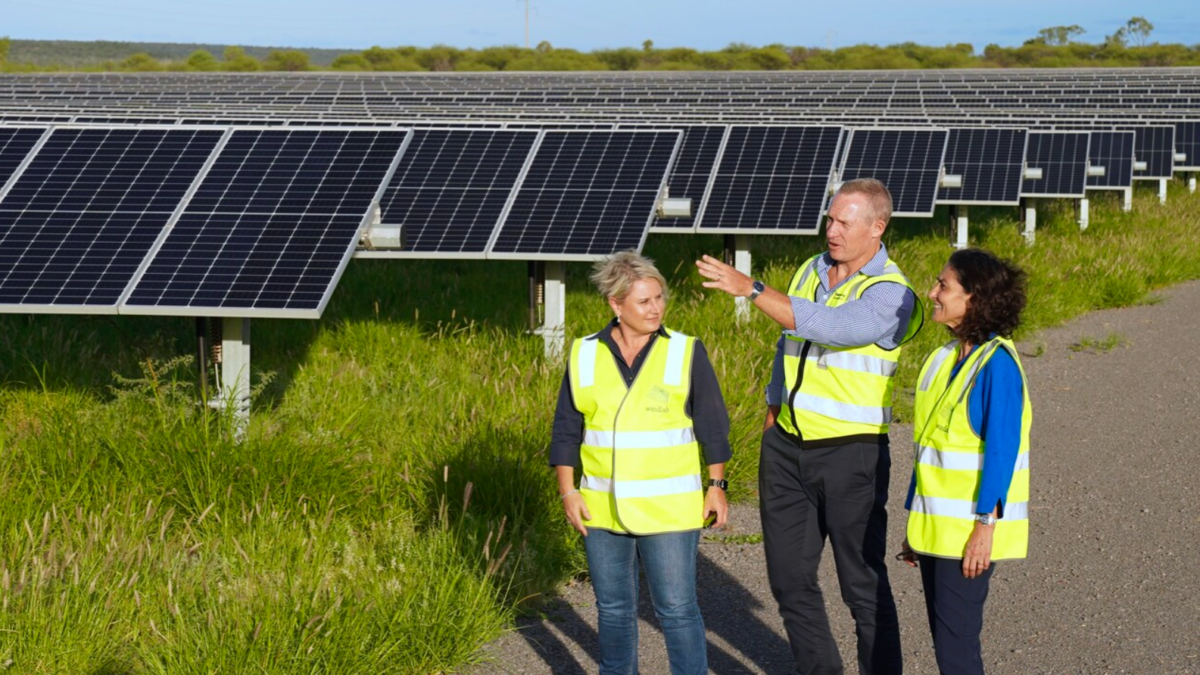Queensland Energy Minister Mick de Brenni said an Australian-first code of conduct will ensure developers engage and work with landholders and communities when developing, building, and operating new generation projects, managing any impacts and delivering real benefits.
The proposed code will be co-designed collaboratively with the energy, environment, and agriculture sectors, local councils, traditional elders and community stakeholders and take into consideration findings of the federal Independent Community Engagement Review (CICER) which made numerous recommendations on mandatory social licence practices.
“The message from the Australian Energy Infrastructure Commissioner in the independent Community Engagement Review is clear: communities must have a genuine seat at the table,” de Brenni said.
“If developers want to be approved to connect to the Queensland SuperGrid, they’ll need to show that they can work in partnership with the local community.”
De Brenni said Queensland already has stringent environmental assessments and approvals that must occur before any renewable energy project can get up and running but “this code could help ensure social licence is at the forefront of these projects progressing.”
Queensland Renewable Energy Council Chief Executive Katie-Anne Mulder said a code of conduct will provide clarity to developers on the expectations of both communities and government on what is required for meaningful and best practice engagement.
“Communities want a coordinated approach to managing local impacts and enduring regional benefits, while industry wants policy certainty and timely approvals,” she said.
“We need to get landholder and community engagement right to realise the full potential of this exciting new industry.”
Regional Queensland is seen as key to the state’s renewable energy transformation with the regions expected to attract about 95% of infrastructure investment.
Iberdrola Australia Chairman and Chief Executive Ross Rolfe said the company, which is developing the 360 MW Broadsound Solar Farm near Clarke Creek, about 1,000 kilometres northwest of Brisbane, said the company fully supports the proposed code of conduct.
“The energy transition presents extensive opportunities for regional Australians to benefit from jobs, training, and localisation of supply chains,” he said. “We look forward to working with government, industry, small business, and community to ensure these opportunities are widely shared by regional Australians.”
This content is protected by copyright and may not be reused. If you want to cooperate with us and would like to reuse some of our content, please contact: editors@pv-magazine.com.








By submitting this form you agree to pv magazine using your data for the purposes of publishing your comment.
Your personal data will only be disclosed or otherwise transmitted to third parties for the purposes of spam filtering or if this is necessary for technical maintenance of the website. Any other transfer to third parties will not take place unless this is justified on the basis of applicable data protection regulations or if pv magazine is legally obliged to do so.
You may revoke this consent at any time with effect for the future, in which case your personal data will be deleted immediately. Otherwise, your data will be deleted if pv magazine has processed your request or the purpose of data storage is fulfilled.
Further information on data privacy can be found in our Data Protection Policy.